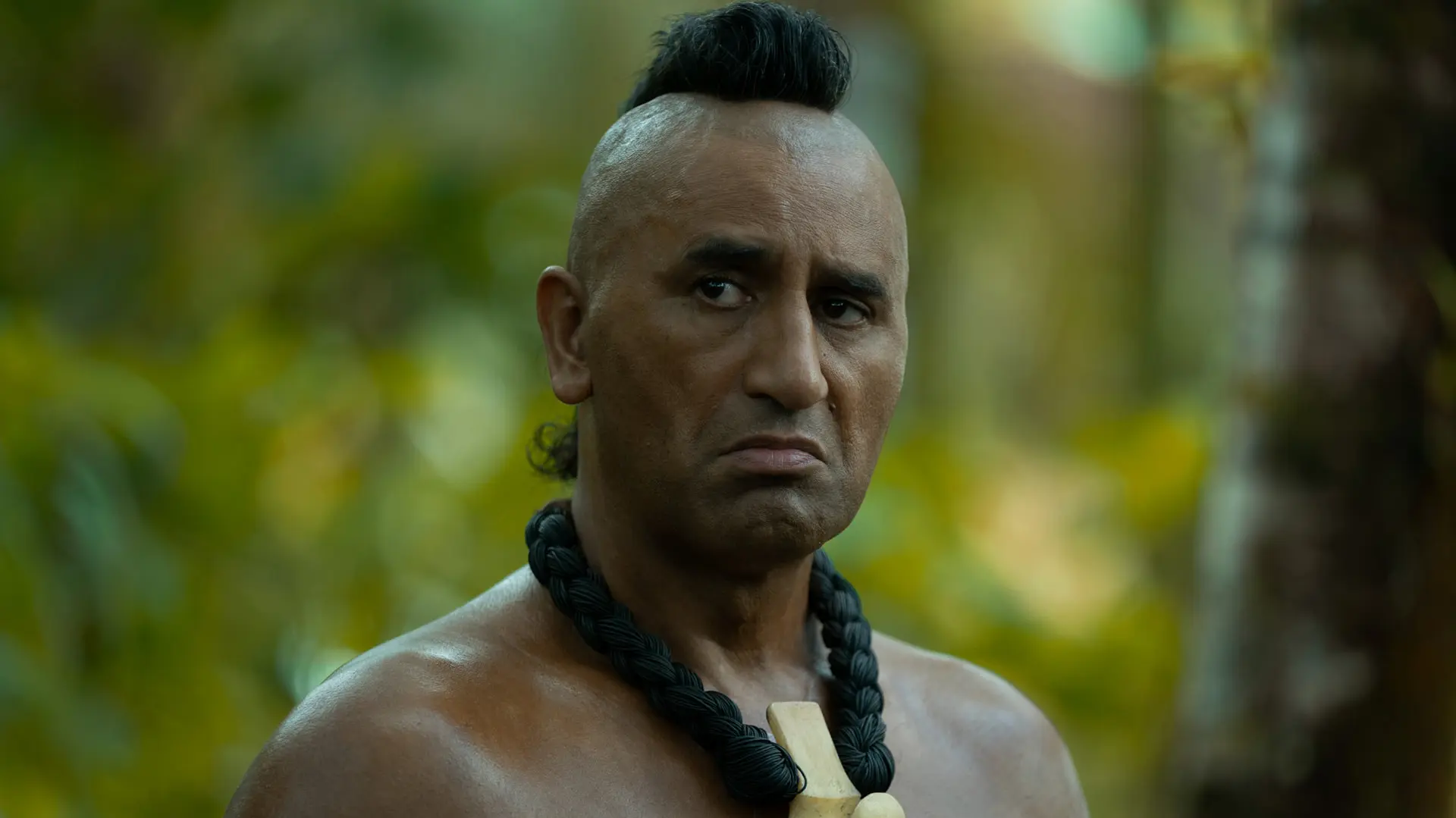Why did Keōua sacrifice Nāhi in Chief of War season 1 episode 8? Explained
-
 Cliff Curtis as Keōua in Chief of War, now streaming on Apple TV+.
Cliff Curtis as Keōua in Chief of War, now streaming on Apple TV+.The latest installment of Chief of War continues to prove why it has become one of the most gripping historical dramas on television. Set against the backdrop of Hawai’i’s turbulent unification wars, the series - led by creators Jason Momoa and Thomas Pa’a Sibbett - dives into power struggles, cultural shifts, and the personal sacrifices of warriors and chiefs caught in a transformative period.
In the Chief of War episode 8, one of the most shocking moments comes with the brutal sacrifice of Nāhi at the hands of Keōua. This pivotal act not only alters the trajectory of Kamehameha’s campaign but also underscores the cruelty and calculated ferocity of Keōua’s methods.
Keōua’s decision to sacrifice Nāhi - violence as a message of war
The question of why Keōua sacrificed Nāhi is answered quickly and brutally: it was a calculated act of dominance, intended as both a personal statement of power and a ritual offering to his gods. After Nāhi and Heke stumble upon Keōua desecrating a sacred grove with the Maui warrior ‘Ōpūnui, Nāhi attacks in a fit of righteous anger. Though initially able to stagger the king, Nāhi is no match for Keōua’s ferocity. The king humiliates him in single combat, crushing his windpipe, breaking his neck, and ultimately smashing his skull with a rock. This one-sided battle isn’t just a display of physical superiority; it’s staged as a warning to all who might defy him.
The spectacle doesn’t end there. Keōua ritualistically sacrifices the grove’s overseer by casting him into a pit of lava, reinforcing his devotion to volcanic deities and linking his victory to divine will. By presenting Heke as a broken witness - forced to carry the story of Nāhi’s death back to Kamehameha - Keōua turns the sacrifice into psychological warfare. It is not simply that he killed Nāhi, but that he ensured the brutality of the act would resonate as a deliberate “message of war.”
Within the narrative, Keōua’s actions reflect a deeper insecurity. Despite being powerful, he constantly seeks validation from his gods and his warriors. Sacrificing Nāhi allows him to frame his brutality as sanctioned by divine authority, strengthening his claim as the chosen leader. The grief-stricken Ka’iana, already estranged from Kamehameha’s court, is pushed toward vengeance, a dangerous distraction at a moment when unity is most needed.
Recap of Chief of War episode 8
The Chief of War Episode 8 opens with devastation. The massacre of villagers by the departing Paleskin ship confirms Ka’iana’s earlier warnings about the dangers of foreign powers, yet instead of vindication, both Ka’iana and Ka’ahumanu are silenced by Kamehameha and Moku. Their advice is rejected, leaving the kingdom vulnerable and fractured.
As tensions rise, Ka’iana prepares to flee with his family, though Nāhi refuses to abandon the people of Kohala. His defiance leads him and Heke straight into Keōua’s path, culminating in Nāhi’s horrific death and Heke’s assault before she is sent to deliver Keōua’s message. Her trauma adds a deeply personal dimension to the already volatile political crisis, showing the toll of war not only on warriors but on women trapped within its cruelty.
Meanwhile, in Maui, Kahekili’s madness escalates. His son Kūpule attempts to overthrow him but is struck down by his own father in a moment that echoes tragic historical parallels. This subplot mirrors the instability spreading across Hawai’i, where madness, pride, and bloodlust threaten to consume leaders.
Elsewhere, Kupuohi convinces Kamehameha that victory against Keōua and Kahekili is impossible without embracing Ka’iana’s firearms. This realization leads to a temporary reconciliation between the two men. Yet even as hope flickers, the episode closes with volcanic eruptions interpreted as an omen favoring Keōua, casting a shadow over the fragile alliance.
Chief of War episode 8 is a masterclass in blending historical drama with visceral emotional stakes. The sacrifice of Nāhi is not simply a shocking death; it is a narrative pivot, cementing Keōua as a ruthless antagonist whose faith and violence are weaponized for power. By turning Nāhi’s murder into a ritual offering and a declaration of war, Keōua forces Kamehameha and Ka’iana to confront their divisions and recognize the urgent need for unity.
TOPICS: Chief of War
- Chief of War Episode 8 release date and where to watch
- Is Jason Momoa's Ka'iana Chief of War from Chief of War a real-life person? History of the character, explained
- Chief of War Episode 6 Ending Explained: How does Keoua’s betrayal impact Kamehameha’s new law of peace?
- Chief of War Episode 6 release date and where to watch